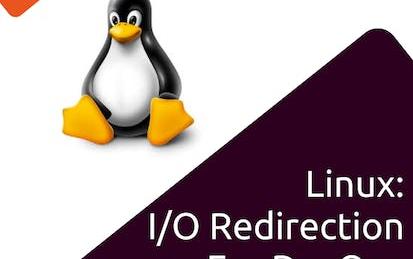

Our Courses

Try It: Learn Linux Command Line
If you are looking to get into cybersecurity or IT, learning the Linux command line would be a great starting point.
Linux command line powers much of the internet’s infrastructure, and learning basic security commands can help you advance your cybersecurity career. Gain highly marketable skills in this free, no-risk introductory course.
-
Course by

-
 Self Paced
Self Paced
-
 1
1
-
 English
English

Introduction to Cloud Infrastructure Technologies
Learn the fundamentals of building and managing cloud technologies directly from The Linux Foundation, the leader in open source.
-
Course by

-
 11
11
-
 English
English

Data and AI Fundamentals
Learn the fundamentals of Artificial Intelligence with a combination of AI fundamentals and an overview of the rich Linux Foundation AI & Data projects ecosystem. It is well-suited for any kind of AI adopter, regardless of the professional background and level of technical knowledge.
-
Course by

-
 11
11
-
 English
English

Git for Distributed Software Development
Get a thorough introduction to Git, the source control system that arose out of the Linux kernel community, that enables widely distributed software development to operate efficiently.
-
Course by

-
 11
11
-
 English
English

Linux Tools for Software Development
Learn the tools you need to confidently work in Linux development environments and beyond.
-
Course by

-
 11
11
-
 English
English

Open Source Software Development: Linux for Developers
Start your open source software (OSS) adventure today by learning the key concepts of developing open source software and how to work productively in a Linux environment.
-
Course by

-
 Self Paced
Self Paced
-
 11
11
-
 English
English

C Programming: Using Linux Tools and Libraries
Learn how to use professional tools and libraries to write and build C programs within the Linux operating system. Receive instant feedback on your code right within your browser.
-
Course by

-
 Self Paced
Self Paced
-
 English
English

Securing Linux Systems
In this course, we look at security and the Linux operating system. The course material is a good for anyone preparing for the Linux Foundation Certified IT Associate (LFCA) exam or just interested in learning more about Linux. This course is the third course in a series that aims to prepare you for working as an information technology professional. In this course, you will be introduced to ownership, authentication, and authorization. We will drill into creating security through backups and redundancy. We concluded by looking at how to secure the perimeter of our network and systems.
-
Course by

-
 Self Paced
Self Paced
-
 14 hours
14 hours
-
 English
English

Meta Back-End Developer
Ready to gain new skills and the tools developers use to create websites and web applications? This certificate, designed by the software engineering experts at Meta—the creators of Facebook and Instagram, will prepare you for an entry-level career as a back-end developer. In this program, you’ll learn: Python Syntax—the most popular choice for machine learning, data science and artificial intelligence. In-demand programming skills and how to confidently use code to solve problems. Linux commands and Git repositories to implement version control.
-
Course by

-
 Self Paced
Self Paced
-
 English
English

Open Source Software Development, Linux and Git
The Open Source Software Development, Linux and Git Specialization will give you a strong foundation for working comfortably and productively in open source development communities.
-
Course by

-
 Self Paced
Self Paced
-
 English
English

Self-Driving Cars
Be at the forefront of the autonomous driving industry. With market researchers predicting a $42-billion market and more than 20 million self-driving cars on the road by 2025, the next big job boom is right around the corner. This Specialization gives you a comprehensive understanding of state-of-the-art engineering practices used in the self-driving car industry.
-
Course by

-
 Self Paced
Self Paced
-
 English
English

IBM DevOps and Software Engineering
DevOps professionals are in high demand!
-
Course by

-
 Self Paced
Self Paced
-
 English
English

Real-Time Mission-Critical Systems Design
This course can also be taken for academic credit as ECEA 5317, part of CU Boulder’s Master of Science in Electrical Engineering degree. Upon completion of this course the learner will know the difference between systems you can bet your life on (mission critical) and those which provide predictable response and quality of service (reliable). This will be achieved not only by study of design methods and patterns for mission critical systems, but also through implementation of soft real-time systems and comparison to hard real-time.
-
Course by

-
 Self Paced
Self Paced
-
 50 hours
50 hours
-
 English
English

Advanced Embedded Linux Development
This courses in this specialization can also be taken for academic credit as ECEA 5305 - 5307, part of CU Boulder’s Master of Science in Electrical Engineering. This specialization provides students with the fundamentals of embedded operating systems including a working understanding of how to configure and deploy a Linux based Embedded System. Students will gain expertise in software tools and development methods which can be used to create applications and build custom Linux based Embedded Devices.
-
Course by

-
 Self Paced
Self Paced
-
 English
English

Check Point Jump Start: Harmony Endpoint Security
Harmony Endpoint is a complete solution that protects the remote workforce from today’s complex threat landscape.
-
Course by

-
 Self Paced
Self Paced
-
 1 hour
1 hour
-
 English
English

C Programming with Linux
In this C Programming with Linux Specialization program of seven short courses, you will learn how to write, read and debug computer programs in the C programming language while also becoming familiar with the Linux operating system. Why learn C and not another programming language? Did you know that smartphones, your car’s navigation system, robots, drones, trains, and almost all electronic devices have some C-code running under the hood?
-
Course by

-
 Self Paced
Self Paced
-
 English
English

Unix and Bash for Beginners
This specialization is intended for people without technical experience who seek to develop bash scripting skills and learn about Unix tools that will allow them to perform basic system administrator tasks on Linux and other Unix-based systems. In these four courses, you will cover everything from navigating the system on the command line, to scripting and automating tasks, to networking and containers. These topics will help prepare you to comfortably navigate and troubleshoot Unix-based systems and automate tasks on more complex systems.
-
Course by

-
 Self Paced
Self Paced
-
 English
English

Linux Basics: The Command Line Interface
Learn the Linux Command Line interface and become a skilled user of this powerful operating system.
-
Course by

-
 English
English

BI Foundations with SQL, ETL and Data Warehousing
The job market for business intelligence (BI) analysts is expected to grow by23 percent from 2021 to 2031 (US Bureau of Labor Statistics). This IBM specialization gives you sought-after skills employers look for when recruiting for a BI analyst. BI analysts gather, clean, and analyze key business data to find patterns and insights that aid business decision-making. During this specialization, you’ll learn the basics of SQL, focusing on how to query relational databases using this popular and powerful language. You’ll use essential Linux commands to create basic shell scripts.
-
Course by

-
 Self Paced
Self Paced
-
 English
English

Decision Control Constructs in C# on Linux
By the end of of this project you will create a guessing game application that pits the computer against the user.
-
Course by

-
 Self Paced
Self Paced
-
 2 hours
2 hours
-
 English
English

Use Bash Scripting on Linux to Execute Common commands
By the end of this project, you will use a bash script to execute commands and observe their output on a Linux system.
-
Course by

-
 Self Paced
Self Paced
-
 3 hours
3 hours
-
 English
English

Linux: I/O Redirection for DevOps
In this 1-hour long project-based course on Linux i/o redirection for DevOps you will be working entirely on the command line and using powerful Linux commands and redirection operators to learn how input and output redirection works in Linux. You will get experience of taking control of what happens to the stdin and stdout of all your commands and no longer be confused about the details on how piping and redirection works in Linux. This course is designed for any person working or who intends to work with Linux, from Linux system administrators to developers and DevOps practitioners.
-
Course by

-
 Self Paced
Self Paced
-
 3 hours
3 hours
-
 English
English

Exam Prep CKA: Certified Kubernetes Administrator
Kubernetes (K8s) is an open-source system for deploying, scaling, automating, and managing containerized applications. This automation helps in improving productivity, efficiency, and reduction of operational downtime for enterprises. This training course helps you develop your skills and knowledge in Kubernetes. In addition, you can also explore basic to advanced concepts of Kubernetes such as Pods, Nodes, Schedulers, Replication Controller & Replica Sets, etc.
-
Course by

-
 Self Paced
Self Paced
-
 19 hours
19 hours
-
 English
English

Introduction to Network Automation
The Network infrastructure industry has undergone a significant transformation in recent years, with an increasing need for automation due to factors such as a demand for faster and more reliable network deployments.
-
Course by

-
 Self Paced
Self Paced
-
 3 hours
3 hours
-
 English
English




